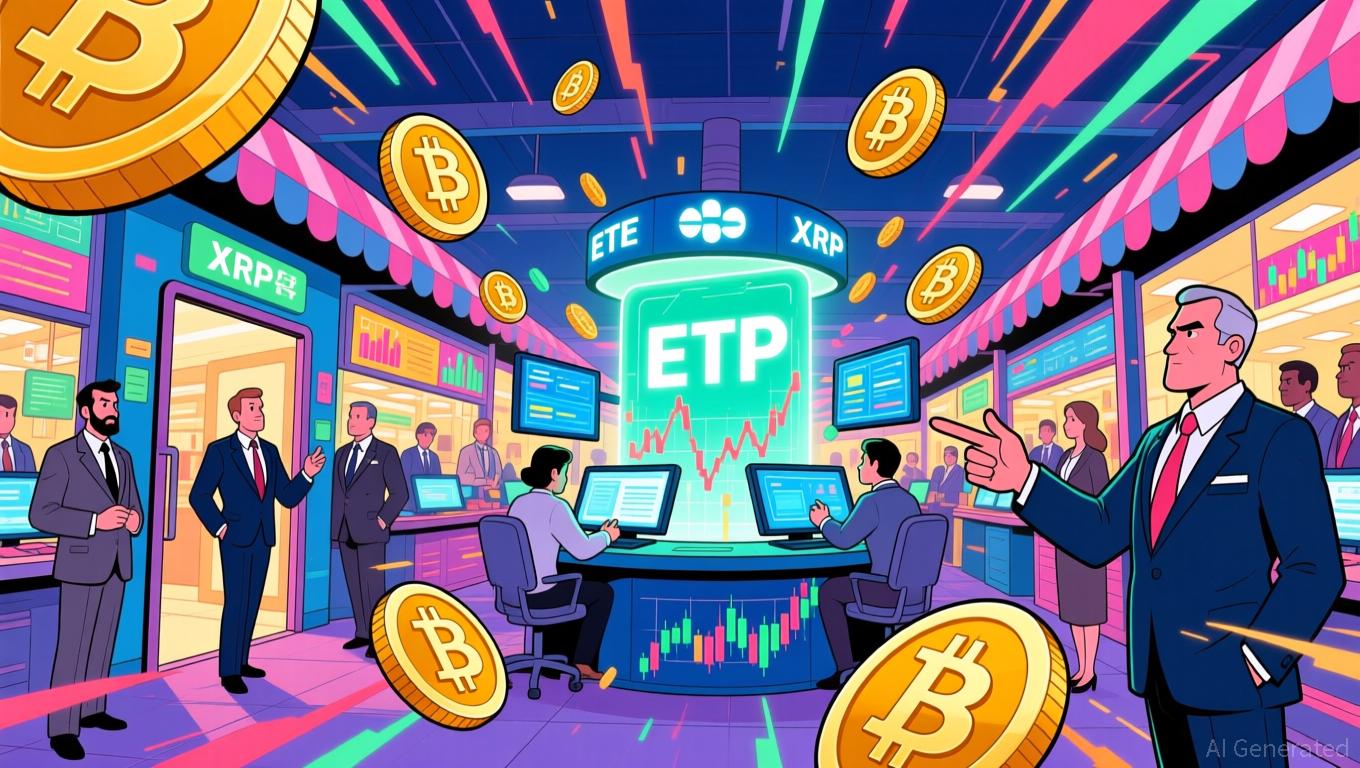PENGU Experiences a Steep 30% Price Decline Within a Week: Liquidity Disruptions and Speculative Pressure in DeFi Platforms
- PENGU's 30% price drop highlights liquidity shocks and speculative overhang in DeFi markets. - Uniswap's 2025 CCA model aims to stabilize token launches but may worsen speculation for non-CCA tokens like PENGU. - DeFi Development Corp's $112.5M funding and IO DeFi's sustainability-focused innovations reshape capital flows and investor priorities. - Protocol innovations like CCA create short-term volatility while long-term stability depends on liquidity mechanisms and environmental alignment.
Liquidity Pool Innovations and Their Impact
Uniswap’s planned rollout of Continuous Clearing Auctions (CCA) in 2025 marks a significant move to tackle inefficiencies in liquidity during token launches.
Shifting Capital and Speculation in DeFi
The $112.5 million convertible note issued by DeFi Development Corp (DFDV)—intended for share repurchases and
New Rivals and Changing Market Attitudes
Protocol Innovation: A Double-Edged Sword
Paradoxically, mechanisms like CCA, which are intended to reduce volatility, can sometimes heighten it in the short run.
Conclusion: Adapting to the Evolving DeFi Environment
PENGU’s steep decline highlights the vulnerability of liquidity in the fast-changing DeFi landscape. While innovations like CCA and green blockchain networks hold promise for greater long-term stability, their rollout can create both beneficiaries and casualties in the short term. Investors should be mindful of risks related to speculative excess and shifting liquidity, particularly for tokens not yet integrated with advanced protocols. For PENGU, future success may depend on adopting similar liquidity solutions or demonstrating distinctive value that aligns with the sector’s growing emphasis on sustainability and openness.
Disclaimer: The content of this article solely reflects the author's opinion and does not represent the platform in any capacity. This article is not intended to serve as a reference for making investment decisions.
You may also like
Bitcoin News Update: Decentralization Scores Big with $265K Solo Miner Victory
- A solo Bitcoin miner earned $265,000 by solving block 924,569 using a 1.2 TH/s Bitaxe Gamma rig, defying 1-in-100,000 odds. - 2025 saw 13 solo-mined blocks, including a 6 TH/s win with 1-in-180 million daily odds, highlighting growing but risky accessibility. - Experts warn solo mining remains niche as Bitcoin's 855.7 EH/s network hash rate makes individual success statistically negligible. - The win underscores Bitcoin's decentralized appeal, though industrial dominance and halving events will likely sh

XRP News Today: SWIFT's Transition to ISO 20022: Laying the Foundation for a Blockchain-Powered Tomorrow
- SWIFT retired its legacy MT format on November 22, 2025, completing a global shift to ISO 20022 for richer data exchange and blockchain integration. - ISO 20022's flexible XML architecture enables compliance, reduces payment failures, and supports cryptocurrencies like XRP in CBDC ecosystems. - Banks face operational challenges adapting legacy systems, but ZKB and others leveraged tools like Smartstream to streamline migration and automation. - The standard strengthens AML/KYC protocols by structuring da

Trump’s approaches to trade and immigration extend inflation and worsen the affordability crisis
- Moody's Zandi warns Trump's tariffs and immigration restrictions worsen inflation and affordability crises by disrupting supply chains and labor markets. - CBO revised tariff revenue estimates downward to $3 trillion by 2035, citing legal challenges, while Treasury's Bessent claims inflation is "under control" despite tariff adjustments. - Tariff renegotiations with Brazil and India highlight global adaptation to Trump's trade policies, yet Zandi predicts elevated prices will persist beyond 2026. - Immig

XRP News Today: "ETFs Drive Crypto's Turbulent Path: Will XRP and Bitcoin Conquer Market Fluctuations?"
- XRP and Bitcoin face volatility amid ETF launches, regulatory shifts, and macroeconomic pressures, with XRP dropping 8.72% to $1.91 on November 20. - XRP ETFs like Canary Capital’s $245M net inflow product and Bitwise’s upcoming offerings signal growing institutional interest despite structural challenges like concentrated supply. - SEC-approved Bitcoin ETFs and the GENIUS Act’s regulatory clarity boost crypto adoption, while BlackRock’s IBIT saw $60.61M inflows after a five-day outflow streak. - Technic
